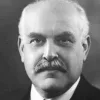But we should not think that we ought not to learn literature because Mercury is said to be its inventor, nor that because the pagans dedicated temples to Justice and Virtue and adored in stones what should be performed in the heart, we should therefore avoid justice and virtue. Rather, every good and true Christian should understand that wherever he may find truth, it is his Lord’s.
[Neque enim et litteras discere non debuimus quia earum repertorem dicunt esse Mercurium, aut quia iustitiae virtutique templa dedicarunt, et quae corde gestanda sunt in lapidibus adorare maluerunt, propterea nobis iustitia virtusque fugienda est. Immo vero quisquis bonus verusque Christianus est, Domini sui esse intellegat.]
Augustine of Hippo (354-430) Christian church father, philosopher, saint [b. Aurelius Augustinus]
On Christian Doctrine [De Doctrina Christiana], Book 2, ch. 18 / § 28 (2.18.28) (AD 397) [tr. Robertson (1958)]
(Source)
(Source (Latin)). Alternate translations:For we ought not to refuse to learn letters because they say that Mercury discovered them; nor because they have dedicated temples to Justice and Virtue, and prefer to worship in the form of stones things that ought to have their place in the heart, ought we on that account to forsake justice and virtue. Nay, but let every good and true Christian understand that wherever truth may be found, it belongs to his Master.
[tr. Shaw (1858)]We were not wrong to learn the alphabet just because they say Mercury was its patron, nor should we avoid justice and virtue just because they dedicated temples to justice and virtue and preferred to honour these values not in their minds, but in the form of stones. A person who is a good and a true Christian should realize that truth belongs to his Lord, wherever it is found.
[tr. Green (1995)]
Quotations about:
source
Note not all quotations have been tagged, so Search may find additional quotes on this topic.
I protest, for about the hundredth time, against the slipshod method of quoting a mere author’s name, without any indication of the work of that author in which the alleged quotation may be found. Let us have accurate quotations and exact references, wherever such are to be found. […] A quotation without a reference is like a geological specimen of unknown locality.
Walter William Skeat (1835-1912) British philologist and cleric
Notes and Queries, 6th Series, vol. 9 (1884-06-21)
(Source)
Every man knows there are evils in this world which need setting right. Every man has pretty definite ideas as what these evils are. But to most men one in particular stands out vividly. To some, in fact, this stands out with such startling vividness that they lose sight of other evils, or look upon them as the natural consequence of their own particular evil-in-chief.
Henry Hazlitt (1894-1993) American business and economics journalist
Thinking As A Science, ch. 1, opening words (1916)
(Source)
The individual source of the statistics may easily be the weakest link. Harold Cox tells a story of his life as a young man in India. He quoted some statistics to a Judge, an Englishman, and a very good fellow. His friend said, “Cox, when you are a bit older, you will not quote Indian statistics with that assurance. The Government are very keen on amassing statistics — they collect them, add them, raise them to the nth power, take the cube root and prepare wonderful diagrams. But what you must never forget is that every one of those figures comes in the first instance from the chowty dar (village watchman), who just puts down what he damn pleases.”
Josiah Stamp (1880-1941) English industrialist, economist, statistician, banker
Some Economic Factors in Modern Life (1929)
(Source)
Quoting Harold Cox (1859-1936), English economist and politician.
But everyone assumes causation when they should be thinking coincidence, and correlation when they should be asking whether Twitter is really a reliable source of information.
There is no such thing as a single-issue struggle, because we do not lead single-issue lives.
Audre Lorde (1934-1992) American writer, feminist, civil rights activist
“Learning from the 60s,” speech, Malcolm X weekend, Harvard University (Feb 1982)
(Source)
Reprinted in Sister Outsider (1984).
Value truth, however you come by it. Who would not pick up a jewel that lay on a dunghill?
James Burgh (1714-1775) British politician and writer
The Dignity of Human Nature, Sec. 5 “Miscellaneous Thoughts on Prudence in Conversation” (1754)
(Source)
Don’t dismiss a good idea simply because you don’t like the source.
H. Jackson "Jack" Brown, Jr. (b. 1940) American writer
Life’s Little Instruction Book, Vol. 2, #691 (1994)
(Source)











